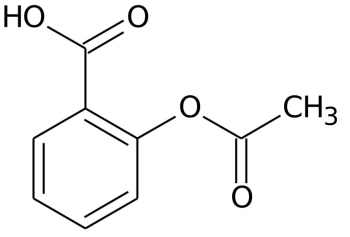

A new study has shown that high concentrations of salicytate, the salt into which acetylsalicylic acid breaks down in vivo, activate AMPK, a cellular energy "sensor" found in all eukaryotic organisms that regulates several important processes, including including cell growth and metabolism.
Aspirin is currently used both as a remedy for colds and flu, and, in a different formulation, as an antiplatelet drug in patients in whom it is necessary to prevent the formation of blood clots. A new experiment in mice could pave the way for a further expansion of the use of this drug, as it has discovered a mechanism of action at the biochemical level that has remained unknown until now, as reported by Simon Hawley of the University of Dundee in Scotland , and colleagues from a large international collaboration in a new article published in the journal Science.
Once entered the body, acetylsalicylic acid breaks down into the salt called salicylate, which is the biologically active component, produced by the willow tree in response to pathogenic infections (for this reason, willow bark extracts have been used as medicines since times of Hippocrates).
Once administered, aspirin live, breaks down rapidly into salicylate, which can also be taken as a salsalate, a formulation that has shown promise in the treatment of insulin resistance and type 2 diabetes.
At a biochemical level, until now it was known that salicylate acts by inhibiting cyclooxygenase, an enzyme responsible for the synthesis of prostaglandins, which in turn regulate numerous biological phenomena, including inflammation, pain sensitivity, fever, secretions of the digestive organs , filtration of liquids in the kidneys, reproduction and blood coagulation. However, in experiments on mice, it was found that animals lacking the biochemical pathways implicated in salicylate are still active.
In the latter study, it was especially shown that high concentrations of salicylate activate a protein called AMPK, which functions in all eukaryotic organisms as a "sensor" of the cellular energy level, capable of regulating a wide range of important processes, including cell growth and metabolism.
Previous research had led to the hypothesis that AMPK activation is a useful treatment for people with cancer, diabetes and other diseases. In and


